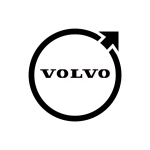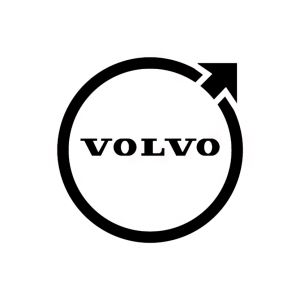Welcome to our dedicated page for Volvo Ab news (Ticker: VOLVF), a resource for investors and traders seeking the latest updates and insights on Volvo Ab stock.
AB Volvo (VOLVO AB B, symbol VOLVF) is the listed parent of the Volvo Group, a Gothenburg-based manufacturing group focused on trucks, buses, construction equipment and power solutions for marine and industrial applications. The company’s news flow reflects its role in global transport and infrastructure, as well as its emphasis on sustainable and advanced technologies.
Visitors to this news page can read company announcements on topics such as annual and quarterly reports, shareholder meetings and dividend proposals. For example, the Volvo Group has published detailed updates on its Annual Report, including commentary on market demand, net sales and operating income, and it has issued notices and outcomes of Extraordinary General Meetings addressing matters like extraordinary dividends following asset sales.
The Volvo Group also releases news about strategic partnerships and technology initiatives. These include the formation of the fuel-cell joint venture cellcentric with Daimler Truck AG, a strategic partnership with Aurora to develop on-highway autonomous trucks, and investments in companies that develop electromobility products and engineering services. Additional releases highlight the expansion of electric truck offerings and broader electromobility programs.
Other communications cover events such as Capital Markets Days, where the Group presents its "Perform and Transform" strategic direction, and environmental initiatives like the Volvo Environment Prize, which recognizes scientific work in sustainability. Investors and observers can use this page to follow how AB Volvo reports on its financial performance, corporate actions, sustainability initiatives and technology collaborations over time.
Volvo Group has published its Annual Report for 2024, revealing a year marked by normalizing market demand and continued geopolitical challenges. The company reported net sales of SEK 526.8 billion, showing a 3% decrease when adjusted for currency. Vehicle sales declined by 5% compared to 2023, while service sales increased by 4%.
The Group maintained profitability despite lower volumes, achieving an adjusted operating income of SEK 65.7 billion (down from 78.2 billion) and an adjusted operating margin of 12.5% (down from 14.0%). The year featured significant product launches across business areas and new partnerships focused on efficient and carbon-neutral solutions.
Paul Anastas, a Yale professor and green chemistry pioneer, has been awarded the 2021 Volvo Environment Prize, recognizing his significant contributions to sustainability in the chemical industry. The jury acclaimed his work for transforming chemical processes to reduce toxicity and waste. Anastas, known as the father of green chemistry, emphasizes the importance of innovative methods that not only match but exceed traditional chemical technologies. The award ceremony is set for December 1, highlighting global efforts in environmental sustainability.
On June 3, 2021, AB Volvo announced its Extraordinary General Meeting to be held on June 29, 2021, conducted solely through advance voting due to COVID-19 restrictions. Shareholders must be registered by June 18, 2021, and must cast votes by June 28, 2021. The meeting agenda includes the election of a chairman, approval of minutes, and a proposed extraordinary dividend of SEK 9.50 per share, with distribution set for July 6, 2021. Further details are accessible on Volvo's website.
AB Volvo's Board of Directors has proposed a distribution of proceeds from the sale of UD Trucks, amounting to SEK 9.50 per share, which totals approximately SEK 19 billion. An Extraordinary General Meeting is scheduled for June 29, 2021, to vote on this proposal, with the record date for distribution set for July 1, 2021. The Board emphasizes that even after the distribution, the company remains financially robust, allowing for continued investments in future technologies aimed at sustainable transport solutions.
On April 29, 2021, Daimler Truck AG and Volvo Group launched their joint venture, cellcentric, aiming to become a leading manufacturer of hydrogen fuel-cell systems for long-haul trucks. This venture signifies a commitment to sustainable transport, with plans to begin production in 2025. The partnership advocates for a comprehensive EU hydrogen policy to accelerate technology adoption and proposes establishing 300 hydrogen refueling stations by 2025 and 1,000 by 2030 in Europe. The initiative is part of broader efforts to achieve CO2 neutrality by 2050.
Volvo Group has acquired a 60% stake in Designwerk Technologies AG, a Swiss engineering firm specializing in electromobility products. This strategic investment enhances Volvo's niche offerings within the electromobility ecosystem. Designwerk's expertise in low-volume production of electric trucks, mobile chargers, and high-voltage battery systems aligns with Volvo's aim for climate-neutral transportation solutions. The deal, expected to close shortly, will not significantly impact Volvo's earnings or financial position.
In Q1 2021, Volvo Group reported a net sales increase of 3% to SEK 94.0 billion, with a significant adjusted operating income of SEK 11.8 billion and an operating margin of 12.6%. Adjusted sales, accounting for currency effects, rose by 13%. The company faced a SEK 1.1 billion impact from currency fluctuations but achieved earnings per share of SEK 4.35. Notable developments include a joint venture with Daimler for fuel cells and the completion of the UD Trucks transaction with Isuzu. However, production is hampered by semiconductor shortages.
On April 20, 2021, Volvo Trucks announced the sales start of three new heavy-duty all-electric trucks, enhancing its electrification strategy for heavy road transport. The Volvo FH, FM, and FMX models will address the growing demand from transport companies aiming for sustainability. With the potential to electrify 45% of EU goods transport, Volvo aims for electric trucks to comprise half of its European sales by 2030. The company also plans future hydrogen fuel cell trucks for long-distance transport, marking a significant step towards cleaner logistics.
The Volvo Group has announced a Capital Markets Day scheduled for November 11, 2021. This event will showcase the company's strategic direction focused on performance improvement and transformation towards sustainable solutions, including battery and fuel cell vehicles. The event details, such as whether it will be virtual or in-person, will be communicated in advance. Volvo Group, headquartered in Gothenburg, Sweden, generated net sales of approximately SEK 338 billion in 2020 and employs nearly 100,000 people worldwide.
Volvo Autonomous Solutions has partnered with US-based Aurora to develop on-highway autonomous trucks. This long-term collaboration focuses on hub-to-hub applications in North America, emphasizing productivity, safety, and sustainability. The integration of Aurora's self-driving technology into Volvo trucks aims to advance Transport as a Service solutions. The partnership builds on previous projects and is expected to enhance commercial offerings for autonomous transport. Volvo aims to solidify its market presence in autonomous solutions by leveraging Aurora's technology and expertise.


